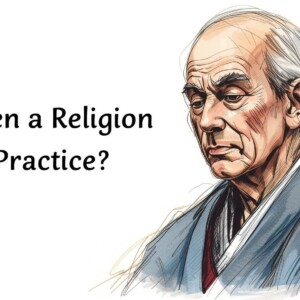
What If I Cry During Meditation? Understanding Emotional Release in Stillness
Meditation is often seen as a calm and peaceful practice—but for many, it can bring unexpected emotional responses. One of the most common (and confusing) experiences for beginners is crying during meditation. If you’ve ever wondered, “What if I cry during meditation?”, you’re not alone—and you’re not doing anything wrong.
In this article, we’ll explore why crying happens during meditation, what it means from a Zen and mindfulness perspective, and how to respond with compassion and understanding.
Is It Normal to Cry During Meditation?
Yes, absolutely. Crying during meditation is a natural and even healthy response. Meditation opens the door to emotional awareness, allowing thoughts, memories, or feelings that have been buried or ignored to rise gently to the surface.
“Tears are not the enemy of peace. They are the evidence of presence.” — Zen Saying
Rather than seeing tears as a problem, Zen views them as part of the process of awakening—a sign that you’re truly meeting yourself, perhaps for the first time.
Why Might I Cry During Meditation?
Here are a few common reasons:
1. Emotional Release
The stillness of meditation gives your nervous system permission to let go. You may release sadness, grief, or past pain that was never fully processed.
2. Self-Compassion
In meditation, you meet yourself without judgment. This soft, unconditional attention may move you to tears—especially if you’re not used to being so kind to yourself.
3. Joy or Gratitude
Not all tears are painful. You might feel deeply grateful, connected, or in awe of the present moment, prompting tears of joy or relief.
4. Physical or Mental Tension
Sometimes crying arises simply from tension leaving the body, or from the mental space created when you stop running and start listening.
What Should I Do If I Start Crying?
The Zen answer: nothing. Just be with it.
Here’s how to stay grounded:
-
Acknowledge the emotion: “This is sadness.” “This is release.”
-
Stay present with the breath. Let it hold you like an anchor.
-
Don’t suppress or rush to analyze. Let the tears come and go.
-
Return to stillness without judgment or shame.
You don’t need to fix anything. Just allow what’s true to be true.
Is Crying a Sign of Progress?
In a way, yes. Crying during meditation often signals that you’re:
-
Letting go of emotional armor
-
Becoming more honest with yourself
-
Opening to deeper awareness
However, Zen cautions against attaching meaning to any one experience. Whether you cry or not, every sit is part of the practice. The real progress lies in your willingness to meet each moment exactly as it is.
What If I’m in a Group Setting?
Crying in a group meditation can feel vulnerable. If this happens:
-
Keep your eyes soft and your posture steady
-
Use a tissue quietly, or leave the room briefly if needed
-
Know that you’re not disrupting the practice—you’re living it
-
Most meditation communities welcome emotional expression with compassion and respect
Tips for Supporting Yourself After an Emotional Sit
-
Journal about the experience without overanalyzing
-
Take a walk or spend time in nature to ground yourself
-
Drink water and rest if needed
-
Speak to a teacher or trusted practitioner if emotions feel overwhelming
Remember, meditation is not just about peace—it’s about truth. And sometimes, truth comes with tears.
Final Thought: Tears Are Teachers
So, what if you cry during meditation?
You breathe. You stay. You let it be.
In Zen, nothing is wrong. The goal isn’t to avoid emotion but to meet all of yourself with full awareness—even the parts that feel tender or messy.
Let your tears fall if they must. They are not a distraction.
They are a signal that you are alive, aware, and practicing deeply.
🌿 Want to go deeper into Zen and mindful living?
Explore ZEN for LIFE — a gentle guide to bringing presence, simplicity, and calm into your everyday routine.
Now available on Kindle.
#ZENforLIFE #MindfulLiving #EverydayZen










この記事へのコメントはありません。